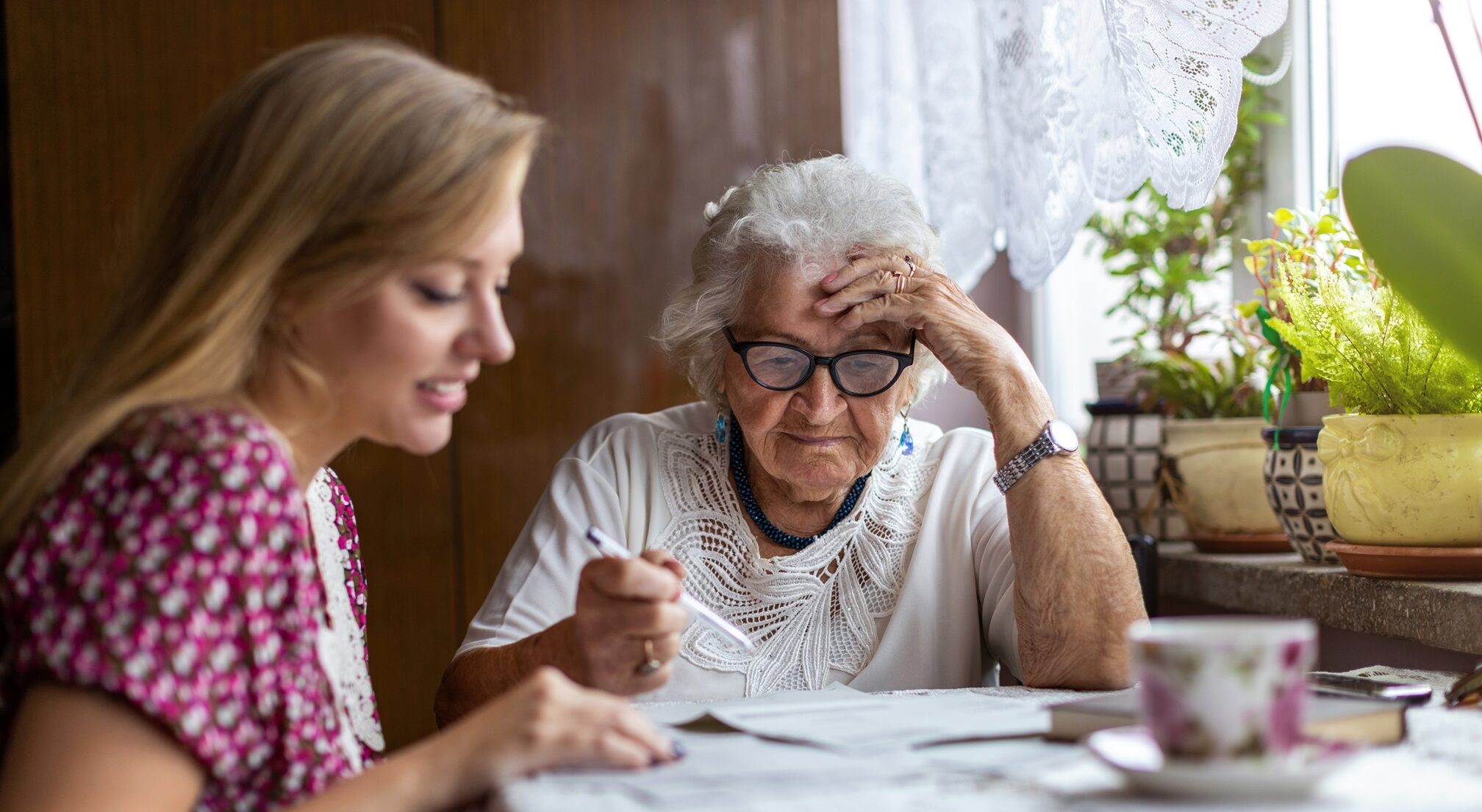In Latin America and the Caribbean, 7.8 million people over the age of 65 need help with activities of daily living, a figure that will increase to 14 million by 2035 and to 23 million by 2050. Aging particularly affects women, who live longer than men and predominantly take on caregiving roles: 75% of dependent older adults in the region are cared for by family members, and 6 out of 8 caregivers are women.
Many times, it’s long and lonely hours where you don’t have time to do anything else.
These are María Gabriela Paz Miño’s words, a certified caregiver for older adults from Ecuador. She was one of the speakers at the first “Europe-Latin America and the Caribbean Silver Economy Forum: Towards a Global Development Agenda on Longevity,” organized by the IDB Group and the “la Caixa” Foundation in early 2025 in Barcelona.
More than 200 global leaders, experts, and representatives from governments, the private sector, social organizations, and startups analyzed the challenges and opportunities of population aging in the region, focusing on three areas: silver finance, entrepreneurship and employability, and the care economy.
Watch the event
The Growing Challenge of Long-Term Care
Being a caregiver is often physically, mentally, and economically tough. When we talk about care, we should not only consider the perspective of the older persons receiving care, but also the side of those who provide care, who are generally women. The challenge is even bigger for unpaid caregiving.
The burden of unpaid care impacts the physical and emotional health of female caregivers, who report more stress, anxiety, and depression than men. Paid caregivers, on the other hand, face low wages, poor training, precarious working conditions, and even workplace violence.
Currently, only 5% of the care needs of older adults are the region is covered by publicly funded services. Furthermore, many caregivers are untrained, 70% of paid caregivers earn the minimum wage or less, and only 1 in 4 contributes to social security.
The challenges are clear: improving the quality of life of older people, expanding the coverage and quality of care services, and professionalizing and formalizing the jobs of those working in care. Although governments play a central role as organizers and regulators of care, scaling sustainable solutions requires the participation of the private sector and social organizations.
Innovations and Lessons from the Silver Economy Forum
Among the most notable experiences are the following:
- Digital Registers and Platforms: In Paraná [CM1] (Brazil), an official registry of caregivers is being implemented along with a cash transfer program aimed at those who provide unpaid care, with the goal of recognizing this work. In Costa Rica, the CUIDAR.CR platform facilitates the connection between families and professional caregivers, improving service quality through training programs.
- Remote Training for Caregivers: Supercuidadores, in Spain, is an online training company that has trained more than 10,000 caregivers, improving their employability and reducing symptoms of stress and exhaustion associated with caregiving tasks. Ana Care operates in seven Latin American countries, offering virtual programs that allow caregivers to balance their daily work activities with specialized training.
- Care Cooperatives: The Suara Cooperative, in Spain, acts as an intermediary between the supply and demand for care. It has 5,000 employees (1,700 are members) and annually serves more than 50,000 people in homes, day centers, and residences. It offers its workers accredited training, career plans, job stability, and social and psychological support. In the Dominican Republic and Uruguay, cooperatives have allowed caregivers to formalize their work and promote quality standards, with positive impacts for caregivers and beneficiary families.
- Comprehensive Care Service Models: The Health and Social Consortium of Catalonia has promoted models of socio-sanitary care, encompassing active aging, prevention of abuse, detection and prevention of unwanted loneliness, among others. This approach is reflected in a continuum of care that articulates health services, home care, and community care. The community center “Esplai Sagrada Família,” promoted by the “la Caixa” Foundation, encourages active aging through self-managed spaces and the work of volunteers, strengthening the sense of community. Other initiatives, such as those of the Keralty Group in Colombia and Adiper in Spain, include social and health elements, offering solutions adapted to the needs of older people.
Care, Well-being, and an Economic Engine
Population aging is an achievement that reflects social progress and opens a unique opportunity: to drive a care economy that improves the well-being of older people and their caregivers while generating inclusive growth.
I want to train more to be able to care for older adults with more challenges like Alzheimer’s, but I also hope that these trainings make a difference for me.
It is estimated that investing in this sector could create up to 300 million jobs worldwide by 2035, like that of María Gabriela, the Ecuadorian caregiver. We have a tremendous opportunity, and hopefully, it will allow caregivers to grow professionally.
Harnessing this potential requires innovation, investment, and public-private collaboration to build more inclusive and prosperous societies.


Leave a Reply